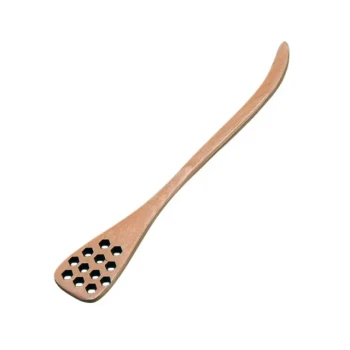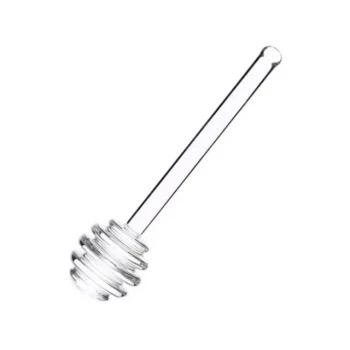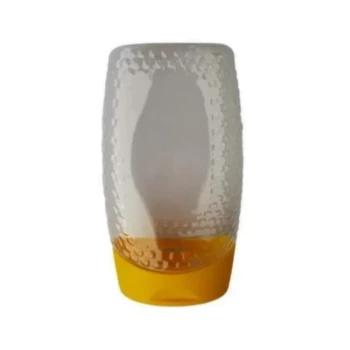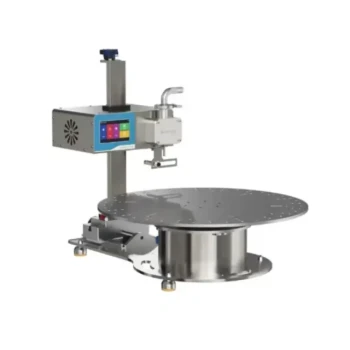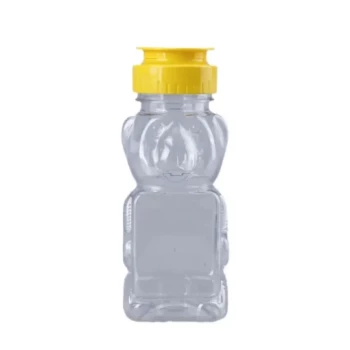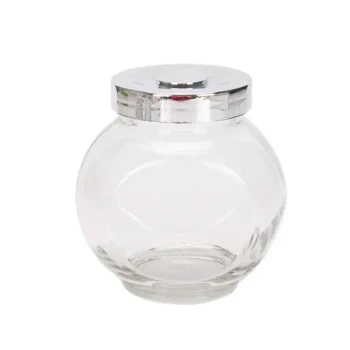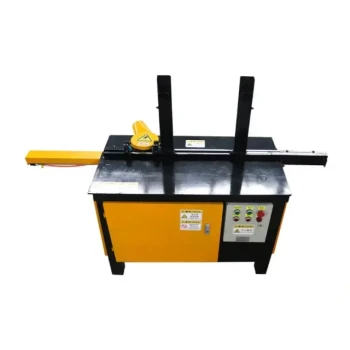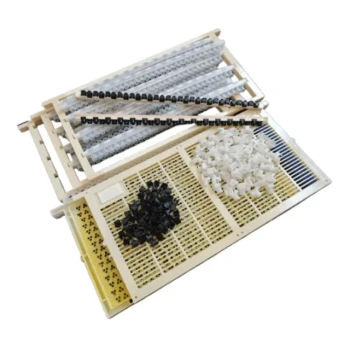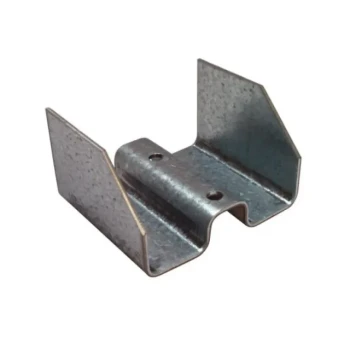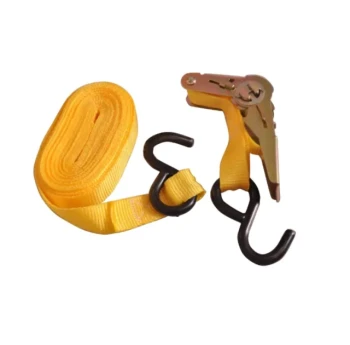Above all else, honey extraction must be conducted indoors in a clean, bee-proof, and food-safe environment. This space, often called a "honey house," can be a dedicated room, a meticulously cleaned garage, or even a well-prepared kitchen. The primary reasons are to maintain honey's purity as a food product and to prevent a "robbing frenzy" where bees from your own and neighboring hives are uncontrollably drawn to the exposed honey.
The question isn't just about where to extract honey, but why that location is critical. The right space prevents bee chaos, contains the inevitable sticky mess, and upholds the food-grade quality of your final product.
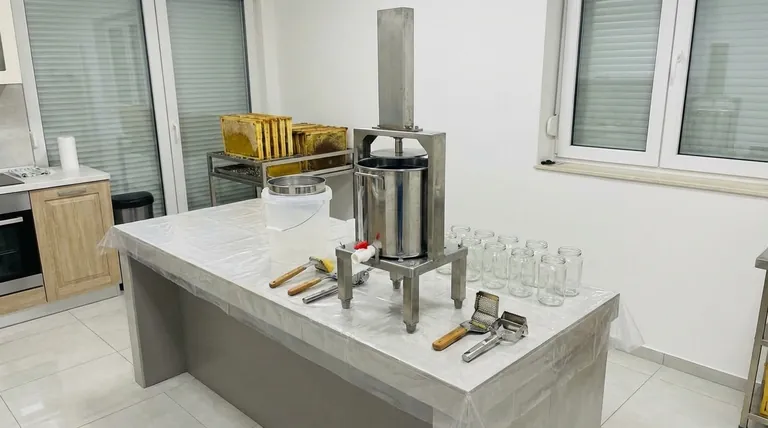
Why an Indoor "Honey House" is Non-Negotiable
Choosing where you process your honey is the first and most critical decision of your harvest. An indoor, contained space addresses three fundamental challenges: bee behavior, food safety, and cleanup.
Preventing a Robbing Frenzy
Honey is the ultimate attractant for bees. The scent of exposed honey can travel a significant distance, alerting bees that a massive food source is available for the taking.
Extracting outdoors or in an unsealed area like an open garage will trigger this "robbing" instinct. You will quickly be swarmed by thousands of frantic bees, making work impossible, creating a danger to people and pets nearby, and potentially weakening or destroying your own colonies as they fight over the spoils.
Ensuring Food Safety and Quality
Honey is a food product intended for human consumption. Therefore, it must be handled in an environment that meets basic sanitary standards.
An indoor space allows you to control for dust, dirt, insects, and other contaminants. A clean kitchen counter or a food-grade plastic-covered table provides a surface that ensures your honey remains pure from the frame to the jar.
Containing the Inevitable Mess
Honey extraction is a sticky, messy process. Droplets of honey will inevitably splash onto floors, walls, and equipment.
Working inside a pre-selected and prepared room allows you to protect surfaces with plastic sheeting or newspaper. A room with a hard, washable floor (like tile or concrete) is far easier to clean than a lawn or wooden deck.
Setting Up Your Extraction Space
Your "honey house" doesn't need to be a professional facility, but it does need to be thoughtfully prepared.
Choosing the Right Room
A kitchen is often a good choice due to its hot water access and easily cleaned surfaces. A well-cleaned garage or basement can also work perfectly, provided it can be completely sealed from outside pests.
Preparing Your Surfaces
Cover the floor with plastic sheeting, a tarp, or layers of cardboard to catch drips. If using a kitchen, ensure all counters and surfaces you will use for the extraction are thoroughly cleaned and sanitized.
Securing the Area from Bees
Before bringing any honey frames inside, ensure all windows are closed and doors are sealed. Any bees accidentally brought in on the frames will fly to the windows, where they can be dealt with later. This containment is crucial.
Essential Equipment for Your Extraction Space
While many tools are used in the apiary to get the frames, a specific set is needed inside your honey house for the extraction itself.
For Uncapping the Combs
This is the process of removing the wax cappings that seal the honey in the cells.
- Uncapping Knife: A long, serrated knife (cold, heated, or electric) used to slice off the cappings.
- Uncapping Scratcher or Fork: A fork-like tool to pierce cappings in lower areas the knife missed.
- Uncapping Tank or Bucket: A container to hold the wax cappings and allow the attached honey to drain. A simple five-gallon bucket with a sieve on top works well.
For Extracting the Honey
This is the core step of getting honey out of the combs.
- Honey Extractor: A machine (manual or motorized) that uses centrifugal force to spin honey out of the frames without destroying the comb.
- Crush and Strain Equipment: Forgoing an extractor, this method involves crushing the entire comb and straining the honey through filters. You'll need food-grade buckets and a sturdy tool for mashing.
For Filtering and Bottling
This final step ensures your honey is clean and ready for storage.
- Sieves or Filters: A set of coarse and fine filters or cheesecloth to remove wax particles and other debris. These often fit directly onto a bottling bucket.
- Bottling Bucket: A food-grade bucket with a "honey gate" valve at the bottom for easy, mess-free filling of jars.
- Containers and Jars: Clean, dry bottles or jars with airtight lids.
Understanding the Trade-offs and Common Pitfalls
Success often lies in avoiding common mistakes. Understanding the "why" behind the rules will help you navigate the process smoothly.
The Temptation of Extracting Outdoors
The biggest mistake a new beekeeper can make is attempting to extract near the hives. It seems convenient, but it will invariably lead to a chaotic robbing frenzy that is difficult to stop and puts your colonies at risk. The benefit of a shorter walk is not worth this cost.
Inadequate Preparation
Honey extraction requires you to have all your tools within arm's reach. Once your hands are covered in honey, you cannot simply run to another room to grab a forgotten tool. Lay everything out on a clean, protected surface before you uncap the first frame.
Extracting "Unripe" Honey
For the best results and long-term storage, only extract honey from frames that are at least 80% "capped." Uncapped honey has a higher water content and can ferment over time. Bringing frames into your honey house that aren't ready for harvest wastes time and effort.
Making the Right Choice for Your Goal
Your specific setup will depend on your chosen method and scale, but the principles of cleanliness and containment remain the same.
- If you are using a centrifugal extractor: Your primary concern is having a stable, level floor and enough space to operate the machine and manage the sticky frames.
- If you are using the crush-and-strain method: Emphasize large, clean work surfaces and a multi-bucket setup to handle the messy process of crushing combs and filtering the honey.
- If your primary focus is hygiene and small batches: A well-protected kitchen is an excellent choice, leveraging the existing clean surfaces and access to hot water for immediate cleanup.
A successful and stress-free harvest is the direct result of a well-prepared, clean, and secure indoor workspace.
Summary Table:
| Key Factor | Why It Matters | Recommended Setup |
|---|---|---|
| Bee Control | Prevents robbing frenzy and colony stress. | Sealed room, closed windows/doors. |
| Food Safety | Protects honey from contaminants like dust or pests. | Sanitized surfaces (e.g., kitchen counter). |
| Mess Containment | Simplifies cleanup of sticky honey splashes. | Washable floors covered with plastic/tarp. |
| Equipment Readiness | Ensures efficient workflow once hands are sticky. | Pre-arranged uncapping knives, extractors, filters. |
Ready to streamline your honey harvest?
At HONESTBEE, we supply commercial apiaries and beekeeping equipment distributors with durable, food-grade extraction tools—from uncapping tanks to honey gates. Let us help you create a seamless, hygienic extraction process.
Contact our team today to discuss wholesale solutions tailored to your operation!
Visual Guide
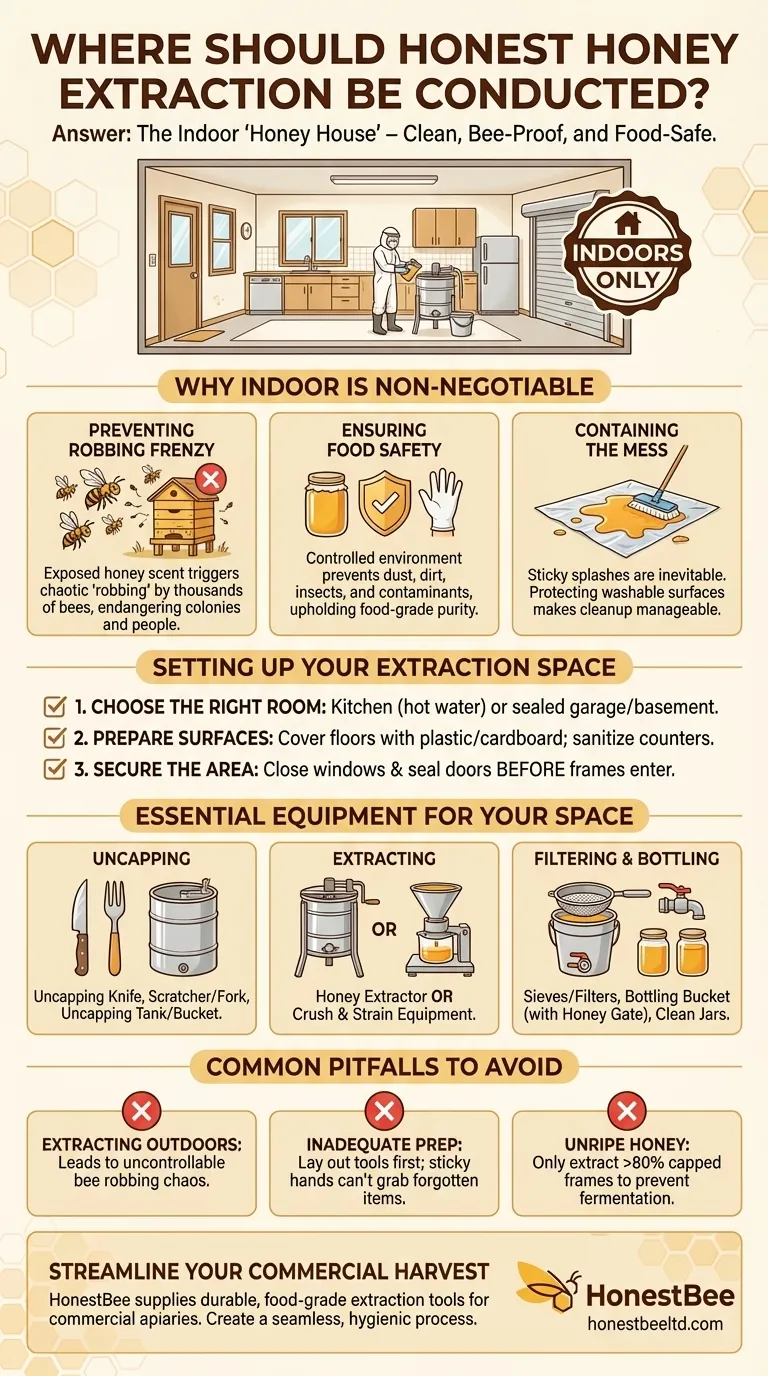
Related Products
- 10L Stainless Steel Electric Honey Press Machine
- Stainless Steel Manual Honey Press with Guard for Pressing Honey and Wax
- Stainless Steel Honey Press Wax Press with Tank
- Electric Flatting and Embossing Machine with Tray for Beekeeping
- Honey Wax Separating Wax Press with Metal Screw Wax Separator Machine
People Also Ask
- What are the key features of the stainless steel honey press? Maximize Yield & Guarantee Purity
- How does pressed honey compare to extracted or crush-and-strain? Unlock the Full Flavor of the Hive
- What are the advantages of using automated stainless steel honey extraction equipment? Boost Your Yield and Purity
- How should a honey press be cleaned after use? Essential Hygiene & Wax Recovery Tips
- How does a honey press function? Expert Insights into Traditional Extraction & Waste Reduction





